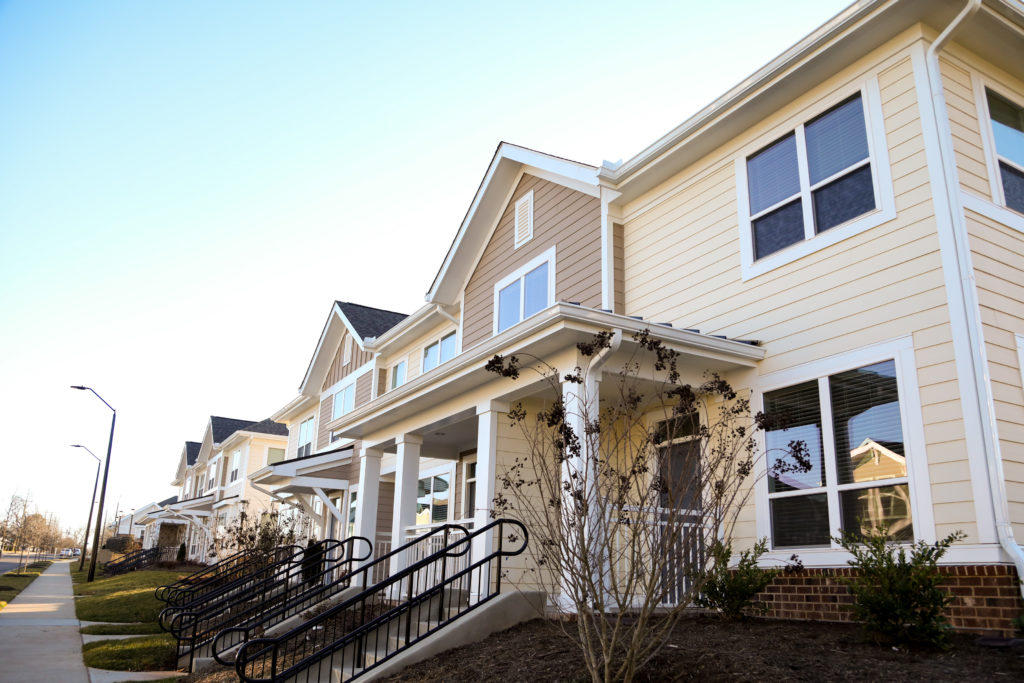April marks the 56th anniversary of the Fair Housing Act of 1968, the landmark civil rights-era law that prohibits housing discrimination. The State of North Carolina passed its own fair housing act in 1983, and the City of Raleigh followed suit in 2002.
Decades on, “fair housing” is a bedrock principle in American communities. But the concept has significantly evolved since the term initially emerged in 1968.
What is fair housing?
The Fair Housing Act was an effort by the federal government to remedy layers of racist and discriminatory practices by housing providers, from racial covenants prohibiting the sale of homes to nonwhite buyers in white neighborhoods, to guidelines among both private and public lenders that rendered Black neighborhoods ineligible for mortgage loans. The Act prohibits home sellers, mortgage lenders, landlords, and anyone else involved in housing transactions from discriminating on the basis of race, color, national origin, religion, sex, disability, or family status.
Today, fair housing is often invoked in the context of individual housing providers failing to meet their obligations to ensure equal opportunity to access housing — a landlord who refuses to install a wheelchair ramp for a disabled tenant, or a realtor who only shows homes in low-income neighborhoods to a Black prospective buyer. A network of public and private programs have sprung up to audit housing providers and attempt to catch fair housing violations.
Fair housing also requires a community-level commitment to ensuring housing opportunity. The federal fair housing law requires the federal, state, and local governments to “affirmatively further” the goals of fair housing. The US Department of Housing and Urban Development has developed regulatory rules stipulating that cities must take steps to reduce housing segregation and discrimination as a part of city planning processes.
What does fair housing mean for Wake County?
Wake County’s municipalities, like virtually every American city, have been profoundly shaped by the discriminatory practices of housing providers in the first half of the 20th century. While the Fair Housing Act eliminated racially restrictive covenants and redlining, communities responded by using land use decisions to frustrate efforts to build diverse types of housing affordable to a wider range of households. For example, Wake County has many neighborhoods that have zoning restrictions that make it difficult to build multifamily housing.
North Carolina was the first state in the nation to define discriminatory land use decisions as a violation of fair housing. In 2021, Raleigh took a major step toward upholding the principles of fair housing by enacting zoning reforms that made it easier to build certain types of small multifamily housing.
Wake County still has work to do to ensure these principles continue to guide our decision-making as a community. With important decisions on the horizon — from the daily debates over multifamily housing projects in individual neighborhoods to the proposed Transit Overlay District along New Bern Avenue in Raleigh that could add hundreds of units of multifamily housing — let’s keep fair housing at the forefront.
Learn how you can speakUP for fair housing and get involved here.
Similar Posts:
- Durham Voters Overwhelmingly Approve Affordable Housing Bond to Fund an Ambitious Plan — The City of Raleigh Should Follow their Lead
- WakeUP Wants to Hear from YOU on Affordable Housing Priorities in Raleigh!
- Raleigh City Council Looks to Durham for Help in Launching its ‘Moonshot’ on Affordable Housing


